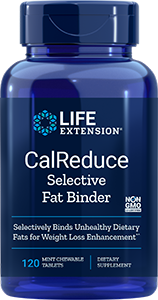- Science & Research
- Science News
- Newsletter
- 2014
- August 12

Newsletter
Newsletter
Meta Analysis Associates Vitamin C Treatment With Improved Endothelial Function
Meta-analysis associates vitamin C treatment with improved endothelial function |
|||
Tuesday, August 12, 2014. The July 2014 issue of the journal Atherosclerosis published a review and meta-analysis conducted by researchers at England's Newcastle University which affirms an association between vitamin C supplementation and improved endothelial function. "To our knowledge, this is the first systematic review and meta-analysis evaluating the effect of supplemental vitamin C on endothelial function in human adults," authors Ammar W. Ashor and colleagues announce. For the analysis, Dr Ashor and colleagues selected 44 randomized trials of vitamin C involving men and women with a median age of 51.1 years who underwent endothelial function evaluation via ultrasonography or other methods. Pooled analysis of 1,129 participants uncovered significant improvement in endothelial function in association with vitamin C supplementation. Further analysis uncovered significant improvement only in association with doses above 500 milligrams per day. The authors note that aging individuals such as those participating in the included trials may have lower vitamin C levels and greater cellular requirements, rendering a higher dose necessary to evoke a physiologic response. "The diminution of oxidative damage and vascular inflammation is a core strategy to maintain a healthy endothelial function and reduce the risk for cardiovascular diseases," they explain. "In addition to its direct reactive oxygen species (ROS)-quenching function, the beneficial effects of vitamin C on endothelial function may be related to the increase in nitric oxide bioavailability." "These results support the idea that vitamin C may be a useful nutritional intervention for the secondary prevention of cardiovascular diseases," they conclude. |
|||
| What's Hot | ||||
| Antioxidant supplementation lowers oxidized LDL | ||||
The July-August, 2012 issue of the Iranian Journal of Basic Medical Science published the results of a study conducted by researchers at Bushehr University of Medical Sciences in Iran which found a reduction in oxidized low-density lipoproteins (LDL) in men supplemented with antioxidant nutrients. Oxidized LDL plays a role in the development of atherosclerosis and increased coronary heart disease risk. Experimental evidence suggests that the administration of antioxidant compounds could help reduce LDL oxidation, thereby retarding the progression of atherosclerosis. The study included two hundred men aged 40 and older with risk factors for cardiovascular disease that included hypertension, disordered lipids, type 2 diabetes, family history of premature cardiovascular disease, obesity and smoking. Participants were divided to receive one of the following five daily regimens for twelve weeks: 500 milligrams (mg) vitamin C, 400 international units (IU) vitamin E, 15 mg beta carotene, vitamins C and E plus beta carotene, or no supplements. Blood samples obtained prior to and after the treatment period were analyzed for plasma oxidized LDL, serum nutrient concentrations, blood glucose and lipids. While oxidized LDL levels remained basically unchanged in the unsupplemented group, they declined in those who received separate or combined vitamin supplements. Those who received vitamin E experienced the greatest reduction, which averaged 24%. "The findings of this study demonstrated that supplementation of antioxidant vitamins decreased harmful biomarkers for cardiovascular diseases such as oxidized LDL," Saeid Najafpour Boushehri and coauthors conclude. "To reduce the risk of cardiovascular disease occurrence, the individuals at risk should be encouraged for a daily consumption of antioxidant vitamins supplementation." |
||||
Life Extension Clinical Research Update Life Extension Clinical Research, Inc. engages in cutting-edge clinical trials with the goal of extending the healthy human life span and defeating disease. Our clinical research is designed to explore the potential of innovative dietary supplements, pharmaceuticals, topicals (cosmetic) and medical devices. Interested In Participating In Future Studies? Play an important role in the research process. Be among the first to potentially benefit from cutting-edge therapies, including innovative nutritional approaches, that may improve your quality and length of life. By participating in a study, you may also receive:
Make a difference for yourself or someone else now. https://www.lifeextension.com/clinicalresearch/ClinicalTrials.htm |
|||||
Health Concern Atherosclerosis and Cardiovascular Disease
Despite the fact that cardiovascular disease is the single most deadly disease in the United States, most individuals, including most mainstream physicians, have a flawed fundamental understanding of the disease. The fact is, long before any symptoms are clinically evident, vascular disease begins as a malfunction of specialized cells that line our arteries. These cells, called endothelial cells, are the key to atherosclerosis and underlying endothelial dysfunction is the central feature of this dreaded disease. Not every person who suffers from atherosclerosis presents with the risk factors commonly associated with the condition, such as elevated cholesterol, but every single person with atherosclerosis has endothelial dysfunction. Aging humans are faced with an onslaught of atherogenic risk factors that, over time, contribute to endothelial dysfunction and the development of atherosclerosis. Maturing individuals must address all of the underlying factors that contribute to endothelial dysfunction if they are striving to protect themselves from the ravages of vascular disease. Regrettably, mainstream medicine has failed to identify and correct all of the cardiovascular disease risk factors. This means that people wishing to stave off atherosclerosis must take matters into their own hands to ensure that all underlying causes are effectively neutralized. |
|||||
| Latest Products | |||||
 |
CalReduce Selective Fat Binder, 120 mint chewable tablets Item #01823 |
||||
CalReduce Selective Fat Binder safely binds to excess fats in your body and can help you maintain a healthy weight. The primary ingredient in this formula is alpha-cyclodextrin, a patented super-fiber that absorbs fat molecules from your food before they enter your bloodstream. This soluble fiber absorbs nine times its weight in dietary fat—without undesirable gastrointestinal side effects. And research shows that alpha-cyclodextrin selectively binds to unhealthy saturated and trans fats without affecting healthy fats such as polyunsaturated fatty acids. In one experimental study, it was shown that alpha-cyclodextrin caused an approximately 13% increase in beneficial omega-3 DHA blood levels. Chewing the recommended two tablets after each fat-containing meal binds up to 36 grams of pure dietary fat, assuming you eat two fat-containing meals daily. This is sufficient to decrease up to 320 calories from the fat in your food. Note: Due to license restrictions, this product is not for sale to customers outside of the United States and Canada. |
|||||
 |
Doctored Results: The Suppression of Laetrile at Sloan-Kettering Institute for Cancer Research, by Ralph W. Moss. Item #33871
|
||||
Ralph W. Moss was Assistant Director of Public Affairs at Memorial Sloan-Kettering Cancer Center in New York City when he unveiled a cover-up of positive tests with America's most controversial anticancer agent, laetrile. He was ordered by MSKCC officials to falsify reports. He refused. Instead, he organized an underground employee group called Second Opinion to oppose this cover up. Moss is the author of ten books on cancer. This is his most dramatic work: a first-person account of those shocking events. "A really great book. The spellbinding story of a scientist who was subjected to tremendous pressure and criticism after he unexpectedly validated an unconventional agent that inhibited metastases."
– Peter L. Pederson, PhD, Professor |
|||||
| Related Life Extension® Magazine Articles | |||
| Enhance Endothelial Function and Reduce Arterial Stiffness |
Why Our Arteries Become Clogged As We Age | ||
 |
 |
||
The latest news on aging, nutrition, and vitamins
Lab
Testing
How Life Extension lab testing works



